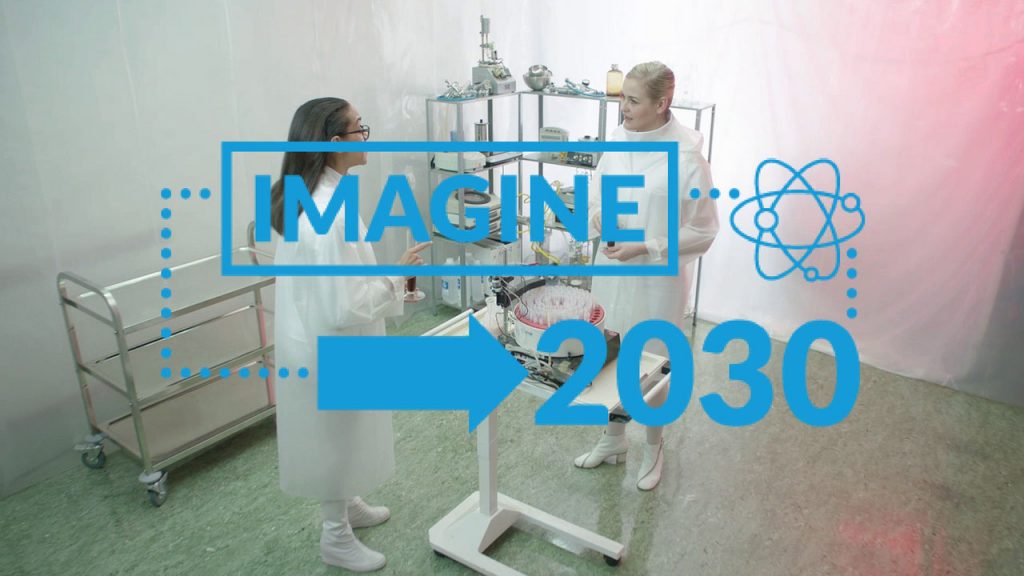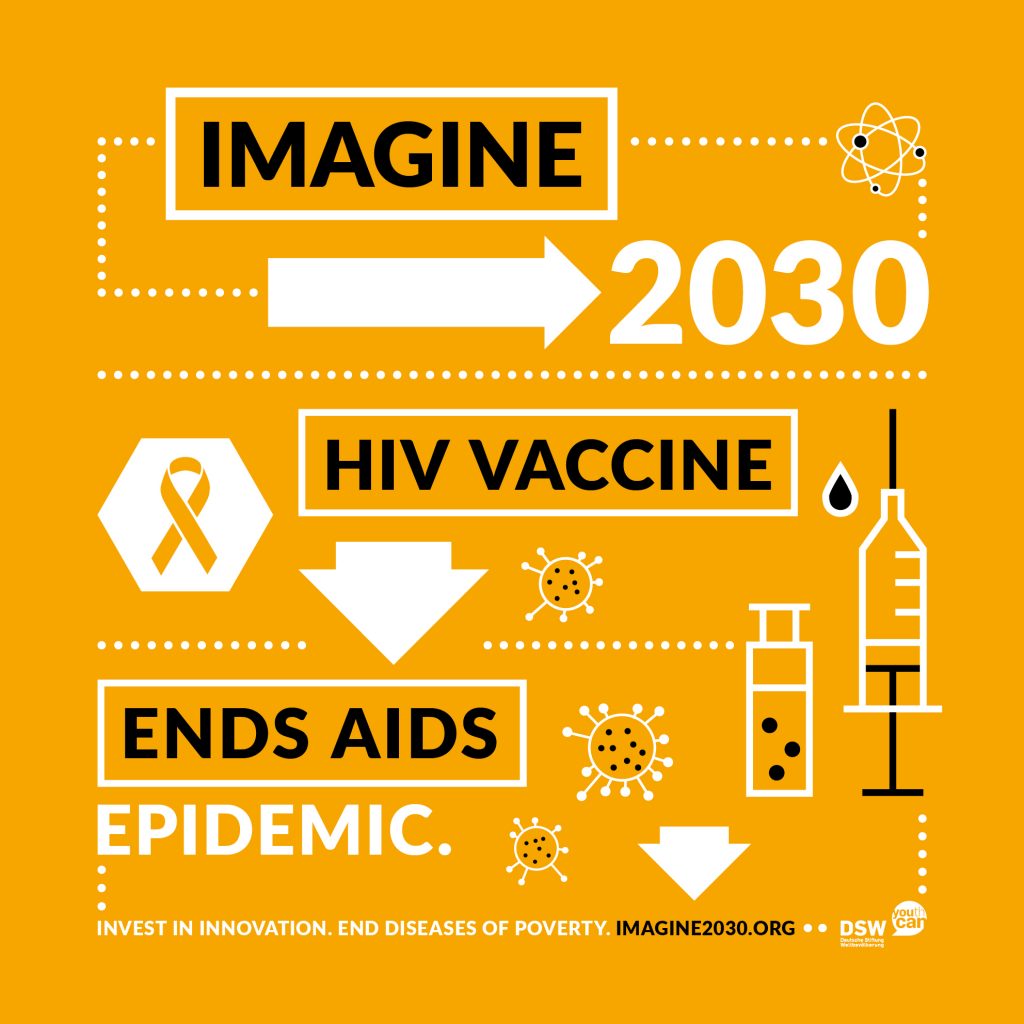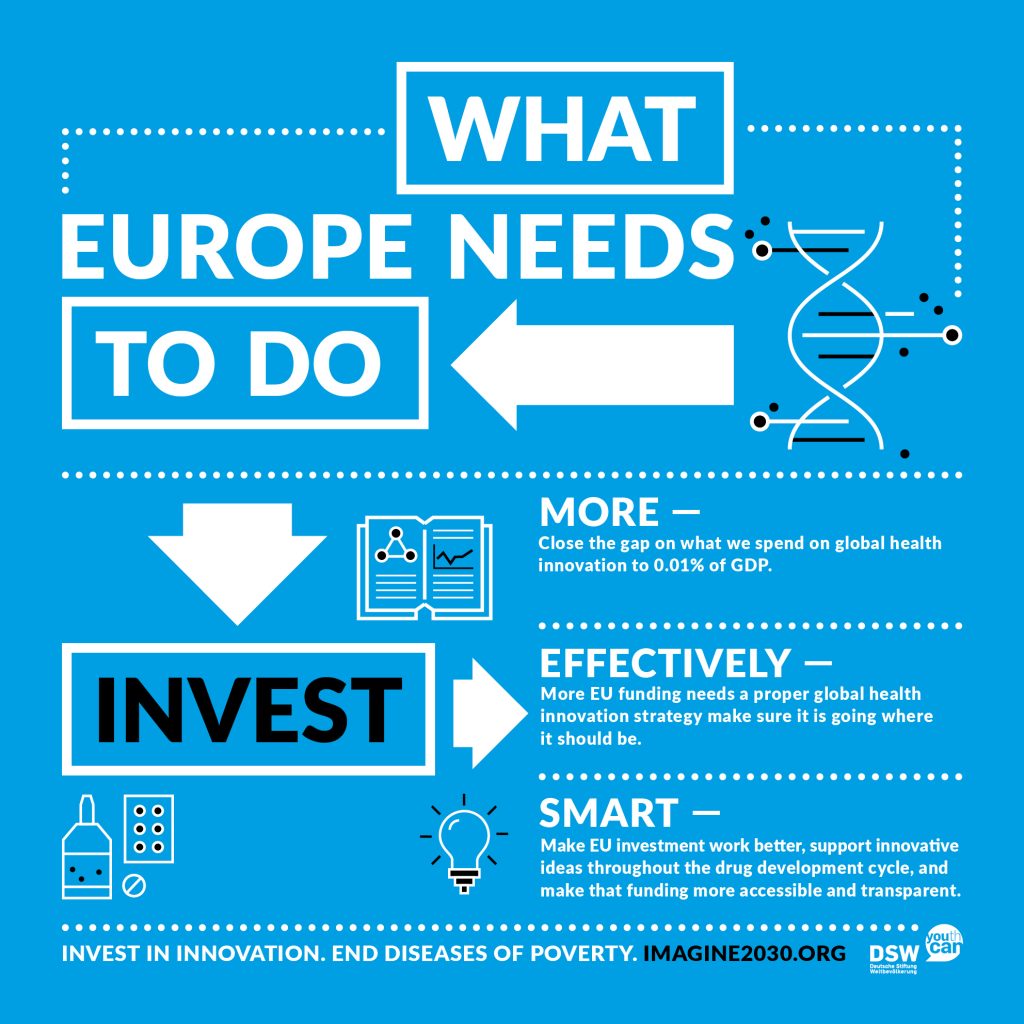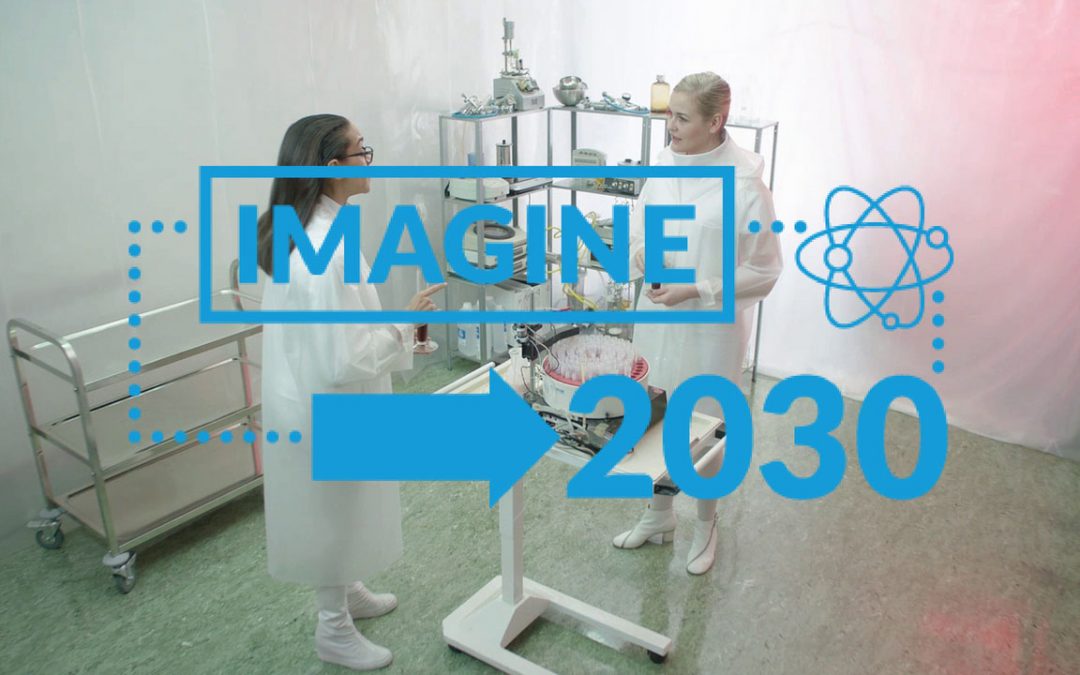
Time is drawing near! Tomorrow, on December 1 (World AIDS Day), Deutsche Stiftung Weltbevölkerung (DSW) will be launching its campaign “Imagine2030: Invest in Innovation. End diseases of poverty”. The campaign will focus on raising awareness on the need to increase European political and financial support for global health innovation. This is essential if we are to eliminate diseases of poverty by 2030.
Investing in global health research and development is essential if we are to finally beat disease – especially the type of diseases that play havoc in the daily lives of people living in countries of poverty. Since millions of lives and the future of the planet are at stake, it’s important to be aware of the urgent need for action in this area. Everyone has a role to play in this – especially you.
Here is what you need to know:
What exactly will Imagine2030 be about?
DSW is committed to a world without diseases of poverty by 2030. In order to end the epidemics of HIV & AIDS, tuberculosis, malaria, and neglected tropical diseases, we need new vaccines, new and better medicines, and improved diagnostic tools. We believe that, to achieve this, European political and financial support for global health innovation is crucial. The Imagine2030 campaign is focused on raising awareness about this need in 2017.

Why an end to diseases of poverty in 2030? Is it really feasible?
We didn’t choose to make 2030 the deadline for ending the epidemics of diseases of poverty – world leaders did when they agreed to the Sustainable Development Goals in September 2015. Huge progress has been made since 1990 in tackling these diseases. With enough political support, financial investment, and action, we believe that it can be done. But it will also need commitment and drive to get us there. These leaders represent your interests, so it’s important you are aware of where their focus should lay.
Why now?
The EU is set to enter a period of reflection on where and how it allocates its seven year budget. This review will include an assessment of the EU’s investment mechanism for research and development, called Horizon2020. In addition to this, in late-2017 and 2018, the EU will start to work on the priorities for the next seven year budget cycle. We see this as an essential moment to raise awareness around this issue.
Why is global health innovation so important?
Diseases of poverty affect over one billion people around the world, and cause millions of deaths in low- and middle-income countries every year. We are forced to deal with these diseases with outdated – and, in many instances, non-existent – medical technologies. That is why we need new and better vaccines, more effective and affordable medicines and treatments, and better diagnostic equipment. The only way we will develop these new tools is through investment in global health innovation.
What role does Europe have in this?
In addition to being the world’s largest development assistance donor, Europe remains a leader in the global health innovation. EU programmes such as Horizon2020 and the European and Developing Countries Clinical Trials Partnership (EDCTP), have made huge strides in closing the innovation gap for global health. Europe is a centre of research excellence in this field. But we believe Europe can do even better.
Ok…but what exactly can Europe do?
As the EU reviews its research budget, we believe it must improve investment in three key ways:
- Invest more: The EU is still far short of meeting the internationally recommended target of spending 0.01% of GDP in R&D for diseases of poverty.
- Invest more effectively: Increased funding needs a coherent strategy for global health innovation.
- Invest smartly: The EU needs to support innovative funding models, like PDPs. Funding, throughout the product cycle, needs to be more accessible and more transparent.

What is in it for Europe?
Supporting innovation to end diseases of poverty would first of all lift the burden of disease from millions of people living in countries of extreme poverty – a key objective of Europe’s global development agenda. However, there also economic returns on this investment that directly benefit Europe – and you too! For instance, for every one euro spent by the EU on disease innovation, a total of 80 cents is reinvested back into Europe – to laboratories, universities and companies. This greatly helps in delivering the objectives of driving economic growth, creating jobs and securing Europe’s global competitiveness. A case in point – EU investment in disease research between 2007 and 2014 directly created 10,000 jobs in Europe!
Want to find out more?
You can follow all our updates and find out more about the issues at www.Imagine2030.org. You can engage with the campaign, and share its messages online through #Imagine2030 and follow us on Twitter (@dsw_worldwide) and Facebook!
The future is ours…let’s make it a better place for everyone. www.Imagine2030.org

